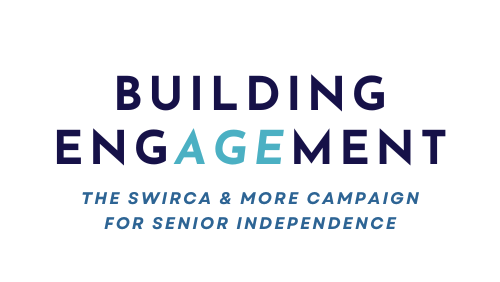Follow Us x
Glossary of Terms
Adult Day Service
Community-based group programs designed to meet the needs of adults living with a disability through individualized care plans. Adults travel from their homes to a facility offering a variety of services, including health, social, recreational, and therapeutic activities.
Assisted Living
Supervised Facility setting. Service cost of Assisted Living is covered through waiver. Consumer is responsible for room and board. Reimbursement rate for AL is based on the Level of Service (LOS) assessment. Must be over 18 and cannot have skilled needs to qualify
Attendant Care
Hands on assistance for individuals who have physical limitations and need additional support in carrying out daily living functions, such as bathing, dressing, and meal planning so they may continue living in their own home.
Case Management
Comprehensive service comprised of a variety of specific tasks and activities designed to coordinate and integrate all other services required in an individual's care plan. Case Management is required in conjunction with the provision of any home and community-based service.
Nutritional Services
Available to eligible participants through congregate lunch sites and home-delivery routes in Vanderburgh, Posey, Warrick, Gibson, Perry, and Spencer counties. For more information, please visit Meals on Wheels Southwestern Indiana.
Environmental Modifications
Minor physical adaptations to the home to ensure the health, welfare and safety of the individual and enable greater independence in the home.
Home Repair and Maintenance
Repairs that directly correct and/or prevent health and safety hazards for seniors and those living with disabilities so they may continue to live safely at home.
Home and Community Assistance
Offers direct assistance of household tasks and related activities for individuals who cannot meet these needs for themselves.
Home Health Aide
Performed by a qualified Home Health Aide, individuals receive hands on personal care to assist with exercises, walking, administering medications, and other simple procedures as an extension of therapy or nursing services.
Personal Emergency Response Systems (PERS)
Also known as Emergency Response Buttons, they help individuals connect to a response center in the case of an emergency. The response center is staffed 24 hours daily/ 7 days per week by trained professionals.
Pest Control
Designed to prevent, suppress, or eradicate anything that injures humans, spreads disease and/or annoys humans and is causing harm.
Registered Nurse
Provides appropriate preventive and rehabilitative nursing procedures, prepares clinical and progress notes, coordinates services, and other related needs.
Respite
Temporary support services or living arrangements for care recipients to provide a brief period of rest or relief for family caregivers.
Self-Directed Attendant Care
Gives an individual the opportunity to hire attendant(s) of their choice so they may have more control over their personal care needs. This option works well for individuals needing some help but want to remain independent and manage their own care.
Specialized Medical Equipment & Supplies
Medically prescribed items which are necessary to assure the health, welfare, and safety of an individual and support greater independence in the home.
Structured Family Care-Giving
A service through which a participant receives care in their own home or the home of a principal caregiver. The principal caregiver cannot be the participant's spouse, the parent of a participant who is a minor, or the legal guardian of the participant.
Supplemental Services
Provided on a limited basis to complement the care provided by caregivers and include home modifications, assistive technologies, emergency response systems, and incontinence supplies.
Transportation
SWIRCA sponsors the Transportation Remuneration Incentive Program (TRIP) to assist economically and socially deprived residents with supplemental transportation services which they might not otherwise be able to afford. To take advantage of this program, you must be at least 60 years of age and a resident of Vanderburgh County.
Vehicle Modifications
Structural changes/additions to a motor vehicle that permit an individual with a disability to be safely transported.
_1.jpg)

